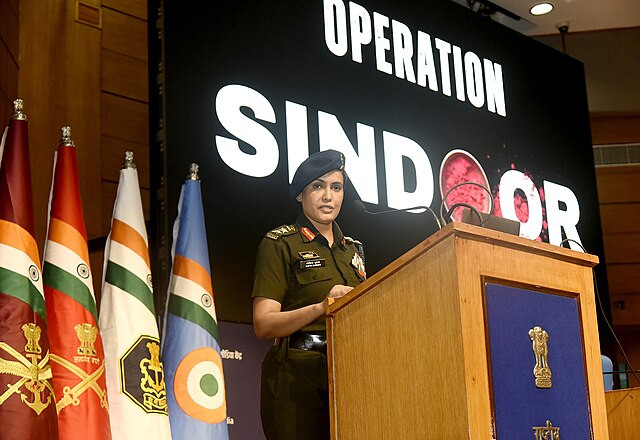India and Pakistan signaled potential interest in de-escalation Saturday following the sharpest military confrontation between the two nuclear-armed neighbors in decades, with both sides trading missile strikes and drone attacks in recent days. Pakistani Foreign Minister Ishaq Dar said Islamabad would consider halting further military action if India also ceased hostilities.
"We responded because our patience had reached its limit. If they stop here, we will also consider stopping," Dar told Pakistan's Geo News. He added that he conveyed this message to U.S. Secretary of State Marco Rubio, who had earlier spoken with Indian Foreign Minister Subrahmanyam Jaishankar in an effort to defuse the conflict.
The State Department said Rubio urged "both sides to identify methods to de-escalate and re-establish direct communication to avoid miscalculation," according to spokesperson Tammy Bruce. The secretary reportedly offered U.S. assistance in facilitating "productive discussion."
The recent conflict began after a massacre on April 22 at a tourist site in Indian-controlled Kashmir left 26 people dead, most of them Hindu tourists. India blamed the attack on Pakistan-backed militants, a charge Islamabad denies. In the days since, both nations have launched strikes targeting each other's military installations and infrastructure, with damage reported across Punjab and Kashmir.
Indian Col. Sofiya Qureshi told reporters in New Delhi that Pakistani missiles struck schools and health facilities near Indian air bases in Kashmir. "Befitting reply has been given to Pakistani actions," she said. Wing Commander Vyomika Singh added that India remained committed to "non-escalation" but observed "offensive intent" in Pakistani troop movements near the border.
"Indian armed forces remain in a high state of operational readiness," Singh stated. She said Indian strikes were "precision strikes only at identified military targets," including radar installations, command centers, and weapon storage sites.
Pakistan's military said it used medium-range Fateh missiles to strike Indian missile storage facilities and airbases in Pathankot and Udhampur. Army spokesperson Lt. Gen. Ahmad Sharif said Pakistan's air force assets remained safe following India's attacks. India also struck Pakistani air bases in Rawalpindi, Chakwal, and Jhang, though Pakistani officials claimed most incoming missiles were intercepted.
In Indian-controlled Kashmir, residents reported loud explosions overnight in Srinagar, Jammu, and Udhampur. "It looks like a war here," said Shesh Paul Vaid, a former police chief in Jammu. "Explosions that we are hearing today are different from the ones we heard the last two nights during drone attacks."
Mohammed Yasin, a Srinagar resident, said: "I was already awake, but the explosions jolted my kids out of their sleep. They started crying." Other residents near Srinagar's airport, which is also an air base, described the sound of jets overhead and structures shaking.
In Pakistan-controlled Kashmir, villagers sifted through rubble in the aftermath of Indian shelling. Homes were reduced to ruins, and families carried the bodies of the dead through the debris.
Despite the violence, public sentiment in some Pakistani cities turned celebratory after missile launches were confirmed. "Thank God we have finally responded to Indian aggression," said Muhammad Ashraf in Lahore. Similar scenes were reported in Peshawar and Karachi.
Praveen Donthi, senior analyst with the International Crisis Group, said both countries appear locked in "a remorseless race for military one-upmanship with no apparent strategic end goals." He added, "Finding an exit or off-ramp is going to be challenging."






